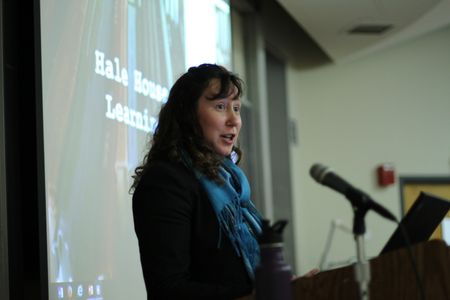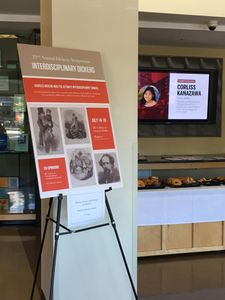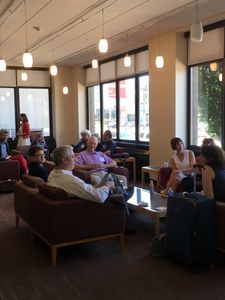International Conference Focuses on Dickens’ Interdisciplinary Thinking
On July 14-16, Boston University College of General Studies hosted the 22nd Annual Dickens Symposium: Interdisciplinary Dickens, a gathering for scholars from across the world to present their research on the nineteenth century writer Charles Dickens. Over 70 scholars attended from nine countries.
Charles Dickens (1812-1870) was not just a spinner of dramas and writer of comedies. He was someone with a concern for social justice, an interest in people from all walks of life, and an interdisciplinary thinker who dealt with the themes of science, disease, linguistics, religion, music, and more. A sampling of conference panels reflects the depth and breadth of Dickens’ interests: Dickens and the Arts; Urban Dickens; Dickens, Disease and Death; Storytelling, Chance, and Melodrama; Dickens, Gender, and Economics.
“Dickens is someone, like Shakespeare, who has encyclopedic knowledge and chronicles people from all walks of life and all parts of society,” Natalie McKnight, dean of CGS and Dickens scholar, told BU Today. “There isn’t much you could be interested in, in terms of a discipline, that you couldn’t find some angle on in Dickens.”
“As is always the case with this conference, the program is testimony to the extraordinary multitudes that Dickens contains,” Iain Crawford, a University of Delaware associate professor of English and Dickens Society president, told BU Today.
A conference report from the Dickens Society said the Interdisciplinary Dickens theme “led to an impressive, diverse collection of methodologies and approaches to Dicken’s work and life.” The report summarizes each panels’ discussions and concludes, “The conference was interdisciplinary in every sense of the word” as participants approached Dickens and his work from a number of different angles—religious, scientific, philosophical, pedagogical and even digital. “The end result is a multi-faceted picture of an author who seemed to have written a bit about everything, whose opinions are inexhaustible as much as his work is inimitable.”
The symposium was co-sponsored by the Dickens Society and the Center for Interdisciplinary Teaching & Learning.




